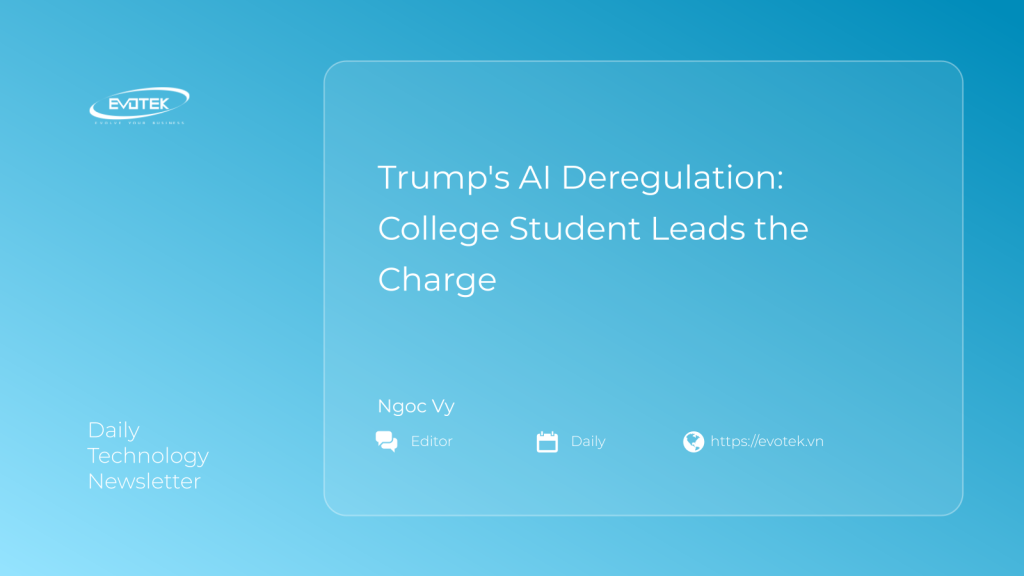A recent appointment by the Trump administration has raised eyebrows across Washington: a college student with limited experience has been tasked with spearheading the effort to use AI for deregulation across the government, starting with the Department of Housing and Urban Development (HUD).
Unprecedented Move: Student to Rewrite Regulations with AI
Christopher Sweet, identified as a third-year economics and data science student from the University of Chicago, is now working with Elon Musk’s Department of Government Efficiency (DOGE) within HUD. His mission: to employ artificial intelligence in overhauling the agency’s existing rules and regulations.
According to an internal email, Sweet’s official title is “special assistant,” but a colleague suggested “AI computer programming quant analyst” might be more fitting. Sweet’s role involves using AI to analyze HUD’s regulations, compare them with underlying laws, and pinpoint areas ripe for deregulation.
Project 2025: A Blueprint for Deregulation
This initiative aligns with “Project 2025,” a Trump administration policy document advocating for widespread deregulation in various sectors, including environmental protection, food and drug administration, and diversity and inclusion policies. Sweet is reportedly focusing on regulations within the Office of Public and Indian Housing (PIH).
Sources within HUD reveal that Sweet has developed a comprehensive spreadsheet identifying potential areas of “overreach” by HUD, along with suggested revisions generated by the AI tool. PIH staff are being asked to review these AI-driven recommendations and provide justifications for any objections.
AI Model to Be Deployed Across Government
One source indicated that the AI model being utilized in this project is intended for broader application across the government, with plans to have it crawl through the Code of Federal Regulations (eCFR). The AI output reviewed by WIRED displays suggested alterations to existing regulations, quantifying potential word reductions and non-compliance percentages.
While Sweet did not respond to requests for comment, the University of Chicago confirmed that he is currently “on leave” from his undergraduate studies.
Questions Arise Regarding Qualifications and Oversight
The appointment has sparked debate about the qualifications of an undergraduate student to lead such a significant regulatory overhaul and the potential implications of relying heavily on AI-driven recommendations.
Representative Maxine Waters, a leading Democrat on the House Financial Services Committee, has previously criticized DOGE’s presence within housing agencies, citing concerns about funding misappropriation, staff terminations, and access to sensitive data.
The situation continues to unfold as AI increasingly intersects with governmental processes, raising critical questions about oversight, expertise, and the future of regulation.

 日本語
日本語 한국어
한국어 Tiếng Việt
Tiếng Việt 简体中文
简体中文